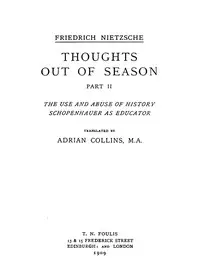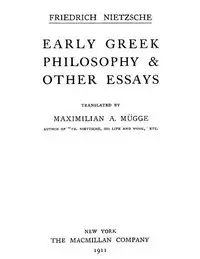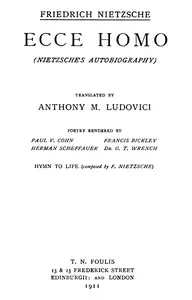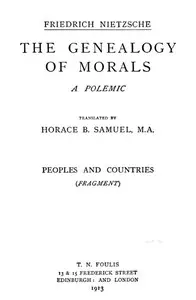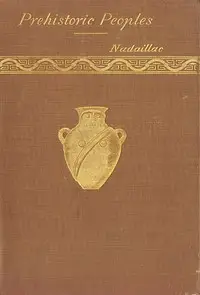"On the Future of Our Educational Institutions" by Friedrich Nietzsche is a collection of lectures that critiques 19th-century German schools for valuing usefulness to the government more than real culture and the growth of unique, brilliant thinkers. Nietzsche argues that real education should nurture genius and value classical art and literature. He introduces his educational philosophy by questioning whether schools are truly effective, claiming they do not encourage creativity or strong thinking. Reflecting on his own schooling and the experiences of others, Nietzsche stresses that schools must protect and nurture the special minds of gifted students and move away from simply trying to be useful. By talking with his audience, he prepares to deeply examine these ideas throughout his lectures.
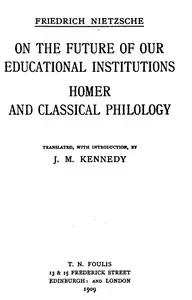
On the Future of our Educational Institutions; Homer and Classical Philology Complete Works, Volume Three
By Friedrich Wilhelm Nietzsche
A philosopher questions whether schools kill genius by focusing on what's useful instead of what's truly valuable.
Summary
About the AuthorFriedrich Wilhelm Nietzsche was a German classical scholar, philosopher, and critic of culture, who became one of the most influential of all modern thinkers. He began his career as a classical philologist before turning to philosophy. He became the youngest person to hold the Chair of Classical Philology at the University of Basel in Switzerland in 1869, at the age of 24, but resigned in 1879 due to health problems that plagued him most of his life; he completed much of his core writing in the following decade. In 1889, at age 44, he suffered a collapse and afterward a complete loss of his mental faculties, with paralysis and probably vascular dementia. He lived his remaining years in the care of his mother until her death in 1897, and then with his sister Elisabeth Förster-Nietzsche. Nietzsche died in 1900, after experiencing pneumonia and multiple strokes.
Friedrich Wilhelm Nietzsche was a German classical scholar, philosopher, and critic of culture, who became one of the most influential of all modern thinkers. He began his career as a classical philologist before turning to philosophy. He became the youngest person to hold the Chair of Classical Philology at the University of Basel in Switzerland in 1869, at the age of 24, but resigned in 1879 due to health problems that plagued him most of his life; he completed much of his core writing in the following decade. In 1889, at age 44, he suffered a collapse and afterward a complete loss of his mental faculties, with paralysis and probably vascular dementia. He lived his remaining years in the care of his mother until her death in 1897, and then with his sister Elisabeth Förster-Nietzsche. Nietzsche died in 1900, after experiencing pneumonia and multiple strokes.








